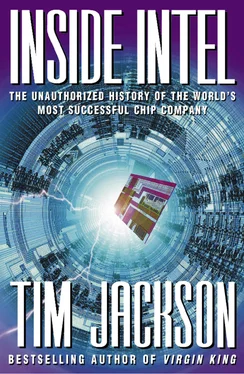Grove was born in Hungary in 1936 with the name András Gróf. Being Jewish, he was forced to go into hiding when German tanks rolled into Hungary, and to stay hidden for the duration of the Second World War. The defeat of the Nazis brought only a slight improvement to the hardships suffered by the members of the Gróf family who survived the Holocaust – for Hungary became a satellite state of the USSR, ruled with bleak and totalitarian oppression. Like many other Hungarians, the young Gróf was forced to struggle simply to achieve the basics of getting enough food to eat and fuel to stay warm – and his teenage years in 1950s Budapest were bleak.
By 1956, after Soviet tanks crushed a reforming Hungarian government and replaced it with a puppet regime willing to answer to Moscow, Gróf had become a politically conscious university student. It was clear that young people who had thrown Molotov cocktails at the tanks didn’t have much of a future in Budapest – and that his life might be no more at risk if he tried to escape to the West than if he stayed where he was. The Austrian border beckoned, a gateway to a better life in the capitalist world.
Some weeks later Gróf arrived in America aboard a rusty old ship that had carried US troops during the war. The journey fell far short of the dream nurtured by so many aspiring immigrants to America. Instead of admiring the New York City skyline as the ship made its way into harbour, Grove did not get so much as a glimpse of the Statue of Liberty. Instead, he and his fellow passengers were transferred through the Holland Tunnel by bus to Camp Kilmer in New Jersey, a former prisoner-of-war camp. Gróf’s first impressions of the grim dormitories were not favourable – in fact, he wondered whether the claims made by the communist propaganda machine that conditions were no better in the West might actually be true.
Soon, however, things began to look up. Andrew Grove, as the new immigrant now called himself, moved in with an uncle in the Bronx, and enrolled in a course in chemical engineering at the City College of New York. He began to make a life for himself, waiting tables at restaurants in order to help pay for his tuition. He hated New York, but worked hard and graduated top of his class, with honours that would give him the right to choose where to continue with his studies. When the moment came to decide where to go, it was the weather that was the deciding factor. To get away from the bitter winters of the north-east, Grove enrolled at the University of California at Berkeley, an idyllically sunny town a few miles north of San Francisco. By then, the young scientist was no longer alone. While working as a busboy in a resort hotel in the Catskill mountains near New York, Grove had met a young Hungarian woman named Eva who became his wife. In 1963, shortly after winning his PhD, Grove won a job at Fairchild Semiconductor, where he worked for the next five years in the research and development department while continuing to lecture at UC Berkeley.
As he grew older, Grove seemed to make a deliberate attempt to blot out the first twenty years of his life. Although he and Eva had a number of Hungarian friends, and his mother had come to California to join them, Grove rarely discussed his East European background with his colleagues at work. He was also extremely reticent about being a Jew; he did not attend any of the local synagogues or participate in the Jewish community. Only to his closest confidants would he drop an occasional clue to his former life. To one, he revealed that he regularly woke up at night, shaken out of his sleep by a dream that he was being chased by a pack of barking dogs. To another, he explained that the most appalling experience of his childhood was not one of the privations he suffered while hiding from the Nazis, but the humiliation of being told by some of his childhood Hungarian friends immediately after the war that their fathers had forbidden them to play with a Jew. To a third, he said that he had hesitated before buying a dog for his two little girls to play with because he knew his mother would associate the dog with the German shepherds used by the Nazis to herd persecuted minorities and other opponents on to the trains that would take them to the death camps.
Yet for all Grove’s attempts to remake himself as a regular American and to turn his back on the first twenty years of his life, it was plain to anyone who met him in 1968 that he was something exotic and out of the ordinary. Grove spoke English with an accent that was so strong as to be almost incomprehensible. Over his head he wore an awkward hearing-aid device that looked like a product of East European engineering. His attitude to work was like that of Stakhanov, the legendary Russian miner whose long hours of labour and tons of output for the greater glory of the proletariat were celebrated by Soviet propagandists. And his manner? Well, put it like this: Andy Grove had an approach to discipline and control that made you wonder how much he had been unwittingly influenced by the totalitarian regime that he had been so keen to escape.
But that wouldn’t emerge until later. In 1968, people who met Grove for the first time usually noticed three things. One was that he was very bright, very good at explaining things – particularly semiconductor devices, whose physical behaviour he had written a book about. Another was that he was very organized, and seemed to know exactly what he wanted and how he was going to achieve it. A third was that he was very keen to make an impression, to justify his position. Grove knew that Noyce and Moore had taken a risk by giving him the job of director of operations, and he was determined to prove that they had made no mistake.
Glancing through the various corporate histories that Intel has published, a casual reader might get the impression that Andy Grove was the very first outsider Noyce and Moore spoke to after deciding to set up in business together. This impression is heightened by Bob Noyce’s frequent references to the company as a ‘three-headed monster’, and also to the fact that Grove is described in some company publications as one of Intel’s three founders.
But in fact there was a fourth man present at the company’s birth who left the company a few years after its foundation. Although he pursued a highly successful business career afterwards, he became a non-person from the company’s point of view. Like a disgraced member of the Politburo, his photo has been airbrushed out of the Kremlin balcony photographs. His name is Bob Graham.
Graham was one of Fairchild’s star marketing men. Joining Fairchild a couple of years after its creation in 1957, he soon came to Bob Noyce’s attention by winning Fairchild its first ever million-dollar contract. The distinction was double-edged: although the deal was the company’s largest ever, it gave Fairchild the lowest price per unit it had ever received – $1.09 per transistor for a one-million lot. It was only later, when Gordon Moore’s research uncovered the workings of the economics of the chip business, that it became widely accepted that falling prices and rising volumes were trends that semiconductor makers had to embrace if they were to thrive.
Graham had been one of the earlier departures from Fairchild, leaving in 1965 to take up a job in Florida running the whole of sales and marketing for a competing semiconductor company. But Noyce hadn’t forgotten him. When he began the search for a leader to oversee the marketing effort of his new company, it was to Graham that Noyce made his first call.
‘I thought it over for about a microsecond,’ recalls Graham, ‘and then said “Sure”.’
He concluded terms with Noyce and Moore on 5 June, 1968, the night that Robert Kennedy was shot. On the strength of a handshake, Graham then went straight back to Florida, resigned his job, and called in the house movers so he and his wife could return to California.
Читать дальше








![Chade-Meng Tan - Search Inside Yourself - Increase Productivity, Creativity and Happiness [ePub edition]](/books/703803/chade-thumb.webp)
